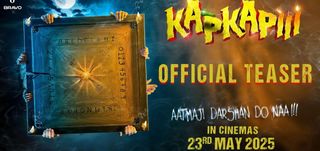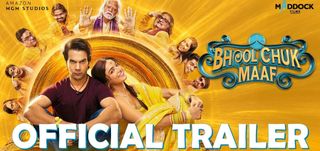
Awarapan Movie Review
Freedom is a major driving force behind Mahesh Bhatt's cinema. Like it or not, Mahesh's tortured vision colours and complements every frame that his protégées from Anurag Basu to Mohit Suri have created.
In this hauntingly delineated portrait of a woman's right to self-fulfilment, Mohit Suri steps forward with a tale that tilts its hat to the very best of world cinema.
European in feel, Indian in texture and supremely secular in its view of love, loyalty and other passionate eruptions, "Awarapan" is one of those tightly-wound thriller-dramas where the outflow of emotions is so controlled that you forget the implausibility of the plot.
Emraan Hashmi gets one more author-backed chance to prove his worth. He does a commendable job of creating a young emotional gypsy whose loyalty to his employee (Ashutosh Rana, fiercely clenched in his evilness) is challenged by his conscience. Every member of the vast cast is in character.
Between the two leading ladies who form a before-and-after axis in the taut plot, Shreya Saran's freshness and expressiveness are infectious. Mrinalini Sharma could've done better if she wasn't dressed wrongly for the part of a brutal man's mistress.
The scenes between Hashmi and his master's mistress will remind you of Shah Rukh Khan and Madhuri Dixit in "Koyla" and also Abhishek Bachchan and Kareena Kapoor in "Refugee".
Hashmi's character and the narration are driven by demons that do not render themselves into any comfortable configuration. Two vital sequences, one where he desperately tries to dig his beloved out of her grave and another when the lacerated hero confronts the villain at the end with tears quietly streaming down his face, showcase Emraan's coming-of-rage proclivities.
"Awarapan" could have been a messy combo of melodrama and mayhem. There are a lot of both in the narrative but the film succeeds in going beyond the routine romantic rituals associated with films about forbidden love.
The locales lend a mesmerising rocky ruggedness to the raga of tormented emotions. The volatile music score (by Pritam Chakbraborty) and the skilful interweaving of deftly cut scenes, which lend lucidity to the script, make the film a cut-above-the-notch viewing.
I've always thought of Emraan Hashmi as an actor who conceals more than he reveals on screen. There is an inherent pain in his personality that this film taps better than anything he has done earlier. This film marks the emergence of a major talent.
Director Mohit Suri harnesses the concealed side of Emran Hashmi's personality with an all-encompassing view into hearts that have known no home.
Freedom could be a song or it could be a poem. In "Awarapan" it's a thought that gets smothered in a stifled scream.
Suri has specialised in manifesting the fears and anxieties of tortured souls in flight. After trying it out with lukewarm success in "Kalyug" and "Woh Lamhe", he gets it right this time.
OTHER REVIEWS



















